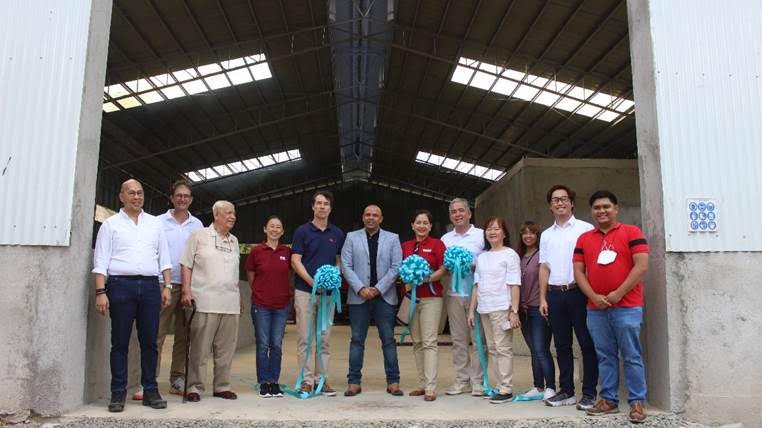
To achieve plastic negativity and help minimize pollution caused by single-use plastics, Alaska Milk Corporation (AMC), in partnership with D&G Pacific Corporation, inaugurated the first-ever Multi-Layered Plastic (MLP) Upcycling Facility in Antipolo City, Rizal, Philippines on 01 February 2023. This plastic processing plant is a first of its kind not just in the Philippines but also Southeast Asia.
"As a responsible producer of plastics used in the packaging of our products, Alaska Milk is devoted to recovering not just the same amount but even more volume of plastics we release in the market. Thus, AlasKalikasan pushes for more sustainable plastic management. In the fast-paced society where we live in which plastics have become ubiquitous in our day-to-day living, strategic upcycling technique and process like this is a must and needs to be expanded. This inauguration does not only kick off its commercial production but also an invitation for potential partners and investors to make this undertaking even bigger," emphasized AMC Managing Director Tarang Gupta.
This launching officially jumpstarted the commercial operations of the MLP Upcycling Facility, which aims to collect single-use plastics (SUPs). The facility produces "WoW" boards that use new technology from TrashCon imported by D&G Pacific from India. The panels are completely recycled and do not use chemicals or additives during manufacturing, ensuring that the product is recyclable, termite-proof, and water-resistant. The boards can be used in furniture production or as a construction material and can be reused up to eight times compared to the usual two to three-time usage of the typical plywood or phenolic boards.
"This partnership was sealed on 6 December 2023 to lead the development of proper zero waste management through cooperation and benchmarking the most advanced solutions worldwide. With the efforts of Alaska Milk and with the help and support of our potential partners, we strongly believe that we will create a huge impact toward sustaining a greener and more sustainable environment. For the people are the sustainability, we are sustainability," said D&G Pacific Corporation President Edmund Gregory Dimalanta. He is also the President of RePurpose, Inc., a company established to assume the rights and obligations to operate the MLP Upcycling Facility.
Dubbed a "sachet economy," the Philippines is considered the third-largest contributor of plastic waste worldwide, notorious for contributing to an estimated 0.75 million metric tons every year. These plastics usually end up in landfills, oceans, or even the air we breathe.
Geared towards a circular economy, this upcycling facility recognizes the vital role of its various stakeholders, partners, and potential investors. "As a rapidly developing country, it is very critical for large corporations like Alaska Milk to monitor, trace, and responsibly manage their plastic production. The establishment of this upcycling plastic facility should serve as a benchmark for other companies and inspire similar industries to emulate similar approach towards plastic negativity," said Dutch Embassy Deputy Ambassador for Mission Robert van der Hum.
With the implementation of Republic Act 11898 or the Extended Producer Responsibility (EPR) Act of 2022, companies are held responsible for the plastic packaging they use throughout the lifecycle of their products and need to demonstrate recovery and diversion of 20 percent of their 2022 plastic packaging footprint; 40 percent by 2024, with 10 percent annual increase up to 80 percent by 2028 and onwards. Alaska Milk aims for plastic negativity status for 2023 or the recovery of 120% of the total volume of the plastic it released to the market in 2022. The company was awarded a Net-Zero Plastic Waste Brand in 2022 by Plastic Credit Exchange (PCX), which means it was able to recover, recycle, and upcycle the total amount or 100% of its plastics generated in the preceding year.